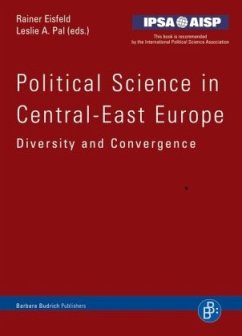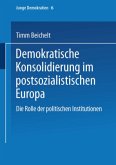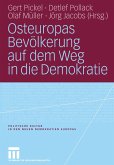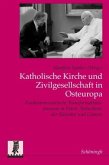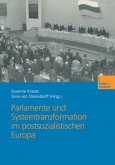The book will survey the recent development and current "state of the art" of political science in post-communist Central and Eastern Europe. It will comprise (a) three comparative overviews: Political Science and Regime Change in East-Central Europe from the 20th to the 21st Century; Analytical and Normative Elements in Political Science Approaches: Is there a Specific Central-East European Pattern?; Political Science Associations in East-Central Europe: How Important, how much International Cooperation?; (b) 20 detailed and comparable country reports: Albania, Armenia, Belarus, Bulgaria, Croatia, Czech Republic, Estonia, Georgia, Hungary, Latvia, Lithuania, Macedonia, Moldova, Poland, Romania, Russia, Serbia, Slovakia, and Ukraine; (c) a chapter on the European Confederation of Political Science Associations. The country reports will include tables on political science faculty, students with political science as a major, and sub-fields taught at both state and private universities (as per the end of 2008). They will cover the following topics: Institutionalization of the discipline; achievements, deficits, prevailing approaches, and funding of research in the discipline's sub-fields; curricula, admission regulation, and degree system in political science teaching; national representation and international cooperation (major journals and published books, political science associations, international links); public impact of the discipline, labor market, challenges and opportunities.
Hinweis: Dieser Artikel kann nur an eine deutsche Lieferadresse ausgeliefert werden.
Hinweis: Dieser Artikel kann nur an eine deutsche Lieferadresse ausgeliefert werden.
Die vorliegende, akribisch zusammengestellte und bemerkenswert umfassende Pionierstudie zum derzeitigen Stand der Entwicklung der Politikwissenschaft in Albanien, Armenien, Belarus, Bulgarien, Kroatien, Tschechien, Estland, Georgien, Ungarn, Lettland, Litauen, Moldau, Polen, Rumänien, Russland, Serbien, der Slowakei, Slowenien und der Ukraine stellt daher einen wichtigen Beitrag sowohl zur Historiographie unserer Disziplin als auch zur Erforschung der osteuropäischen politischen Transformationen dar. Rainer Eisfeld und Leslie A. Pal haben es geschafft, selbst für Länder, die auf der mentalen Karte vieler Europäer bis heute fehlen, informative Beiträge einzuholen. Sie stellen darüber hinaus ihrer Aufsatzsammlung eine erhellende Interpretation der verschiedenartigen Entwicklungen der Politikwissenschaften voran und verwenden in diesem Zusammenhang auf fruchtbare Art und Weise das Konzept der "hybriden" Regimes. PVS 1/2011 Das Herausstellen des Mehrwerts des internationalen Netzwerkgedankens in Forschung und Lehre sowie in institutionalisierter Form über die Fachverbände zieht sich erfreulicherweise wie ein Roter Faden durch den informativen Sammelband. Insgesamt ist die Lektüre der empirisch gehaltvollen Einzelbeiträge ein Gewinn für Studierende und Lehrende ebenso wie für die mit der Schaffung des europäischen Hochschulraums befassten Wissenschaftspolitiker. OSTEUROPA 1/2012 ... ein Bild von der Entwicklung des Faches in den postkommunistischen Ländern, das es in dieser Informationsdichte und Vollständigkeit bisher nicht gab. Zeitschrift für Ostmitteleuropa-Forschung. 1, 61/2012 Eisfeld und Pal haben mit ihrem Sammelband, in dem die Entwicklungen der Politikwissenschaften in 19 mittel- und osteuropäischen Transformationsländern reflektiert werden, eine große Lücke in der Osteuropaforschung geschlossen. Die Beiträge, die sich erfreulicherweise auf weitaus mehr Staaten erstrecken als dies normalerweise in vergleichenden Osteuropa-Studien der Fall ist, folgen dabei einer von den Herausgebern entwickelten Systematik. Portal für Politikwissenschaft, 25.10.2012

